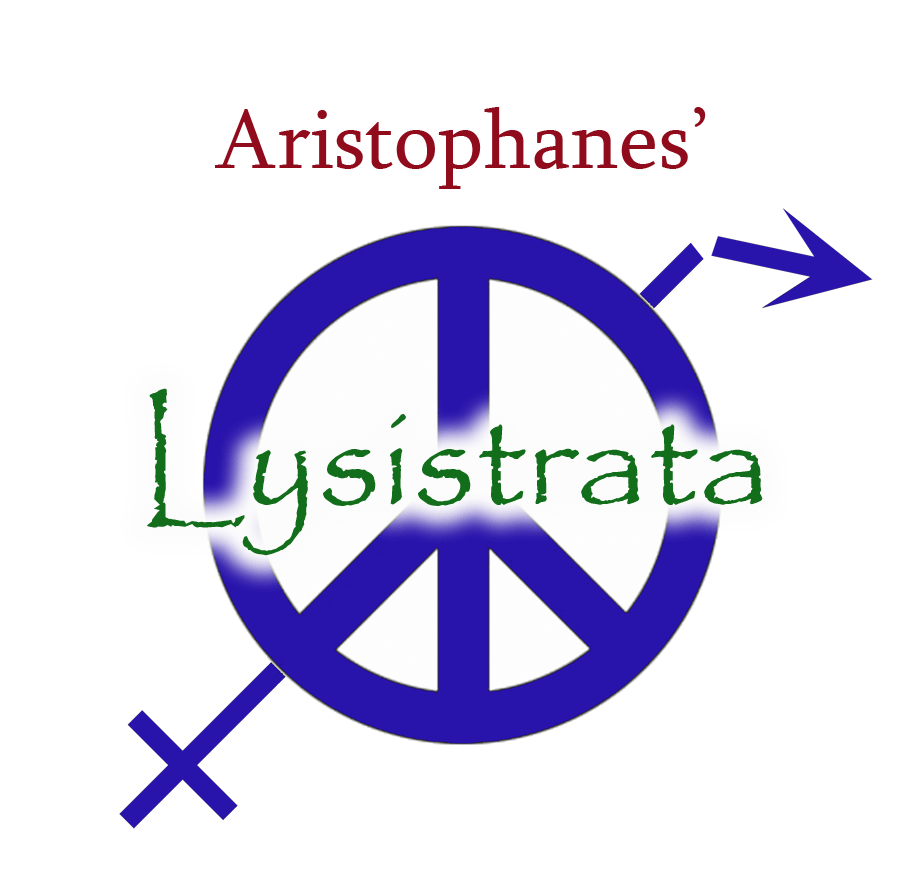|
In This Issue:
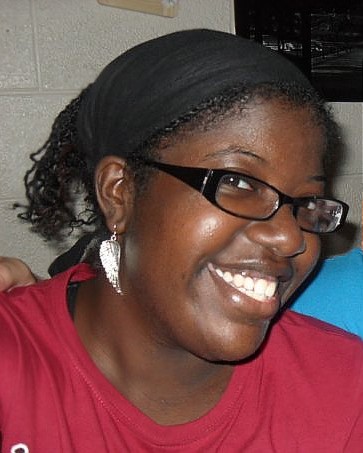
The Way the Wind Blows
By Fannetta Jones
I have been a Chicagoan all my life. I’ve lived in the same
neighborhood, on the same street, for as long as I can remember. In
a big city like Chicago, there are plenty of opportunities to
explore literature and over various avenues of artistic expression.
With this in mind, there is no question as to why I was interested
in the English major. Having been surrounded by such a large amount
of creativity all my life, I could not help but want to go into this
field myself. It just so happened that English and writing were two
areas of interest that really appealed to me. Something about the
written word that seemed to fit me best. After making the decision
to pursue English in my sophomore year of high school, it was just a
matter of time before I was able to decide which college I would
attend to further my exploration of the English language. Being in
Chicago, I had a wide variety of places to attend. From University
of Chicago, to Columbia College, and even University of Illinois,
there were so many schools that seemed to fit what I was looking for
in a school. It is a wonder that a massive place like the Windy City
somehow blew me almost four hours south down to the town of
Monmouth.
Enrolling in the English major at Monmouth College has done a lot
for me that I think I may not have gotten had I stayed up near
Chicago. For example, at Monmouth College I’ve learned a lot about
Carl Sandburg, a literary figure I’d only heard of in passing while
going through school in Chicago. I have been able to do a lot more
close reading of pieces that I may have only glanced over in high
school. Essentially, Monmouth’s English department has presented
literature and writing to me in a way that I could understand. At a
big university, it is easy to get lost in the crowd and be expected
to just “know” what is going on. However, at Monmouth, the
professors work towards enhancing your interpretations and overall
understanding of literary pieces. This has truly helped me towards
becoming a better English major and writer as a whole.
Now, it
goes without saying that coming to Monmouth was a bit of a culture
shock. I’m accustomed to big buildings and loud noise at all hours
of the night. Here at Monmouth, our only neighbors are corn stalks,
and that definitely took some getting used to. I also had to get
used to not being within 15 minutes of anything I could possibly
need at a given time. I suppose city life will do that to you. But
at Monmouth, I’ve been able to do a lot of things I can’t do in the
city. I enjoy sitting outside and looking at the stars that I
normally can’t see in the city due to all the lights. I enjoy being
able to go to a store in town and have people actually know my name.
I guess Monmouth, being such a small town, has really taught me to
appreciate the “little things.”
The
Union of Latin and English
By Alex
Nall
 Over
the summer I was presented the opportunity to take Latin as a
foreign language over my alternative, Spanish (which I had drudged
through in high school for two years). I was excited by the
challenge and was told that Latin was the core center of many other
languages. Perhaps if I studied Latin I would have a better
understanding of English. Since I am an English major I decided to
take the 8 am Latin 101 class taught by Professor Tom Sienkewicz. As
the class progressed I had a few questions come to mind: What could
learning Latin offer us in the 21st century, how did our
magister (teacher) get his start and how could Latin help English
majors and minors. Over
the summer I was presented the opportunity to take Latin as a
foreign language over my alternative, Spanish (which I had drudged
through in high school for two years). I was excited by the
challenge and was told that Latin was the core center of many other
languages. Perhaps if I studied Latin I would have a better
understanding of English. Since I am an English major I decided to
take the 8 am Latin 101 class taught by Professor Tom Sienkewicz. As
the class progressed I had a few questions come to mind: What could
learning Latin offer us in the 21st century, how did our
magister (teacher) get his start and how could Latin help English
majors and minors.
I
conducted an interview with Magister Sienkewicz and here is what he
told me about his personal history and his opinions about the
relationship between Latin and English.
He told me a quick
history of Latin being taught in high schools up until the 1960s
when Latin had been required to get into college. Magister
Sienkewicz has his experience with the language since he took it for
four years in high school and three years of Greek as well. He also
said that the removal of the requirement of Latin in high schools
has blossomed a “shortage of Latin teachers” throughout the nation.
When asked how
Latin can be used to help English majors he told me that in Latin
there is a strong focus on both grammar and helps students realize
where the origin of some words come from and how our modern language
is derived from ancient Roman words. For example, the word
janitor comes from ianitor, a Roman guardian of a wealthy
family’s household. He told me the importance between the realizing
the differences between Roman society and the modern world we live
in today. He also emphasized that all ancient cultures have a
“special perspective” and that the better we understand them the
more cognizant we would be of our own culture.
Magister Sienkewicz
and Kenneth Kitchell wrote the textbook designed for the class and,
to make the lessons easier to comprehend, they have included a
narrative story featuring two families (one poor, one rich), set in
Caesar’s Roman empire and a monkey named Socrates. When I told him
that English majors would find this an interesting approach to
teaching a foreign language he told me that he and his co-writer
were not the first professors to approach this method. He said that
the main objective of the class is not to be able to write Latin but
to be able to decipher it and understand its importance. English
majors can appreciate the idea of introducing a storyline and
characters into other subjects since it makes the class not only
more interesting but more comprehensible as well.
I recommend
students, and English majors especially, to take the Latin class in
order to grasp a better understanding of where the language they are
studying came from and how it is used today. The Latin class offers
fun assignments, rewards for vocabulary bees but also an opportunity
to go to Rome and the promise that “you are guaranteed a job as a
Latin teacher”!
A Moment with Marlo
By Fannetta Jones

One
aspect of the English department that hasn't quite been the same
this year is the absence of our beloved professor, Marlo Belschner.
Professor Belshner was given the amazing opportunity to go abroad
and further her studies in English and Shakespeare (her love, haha).
I was given the lucky opportunity to converse with Professor
Belschner about her travels and here is a bit of how that
conversation transpired:
How are you enjoying sabbatical?
It is amazing. To have all of this time to read and catch up on
what is happening in Shakespeare studies is amazing. To be able to
read for pleasure every day, too--for hours, most days--is the most
amazing gift. My sabbatical is more incredible than I even
imagined. It has given me the gift of time, which doesn't happen
very often.
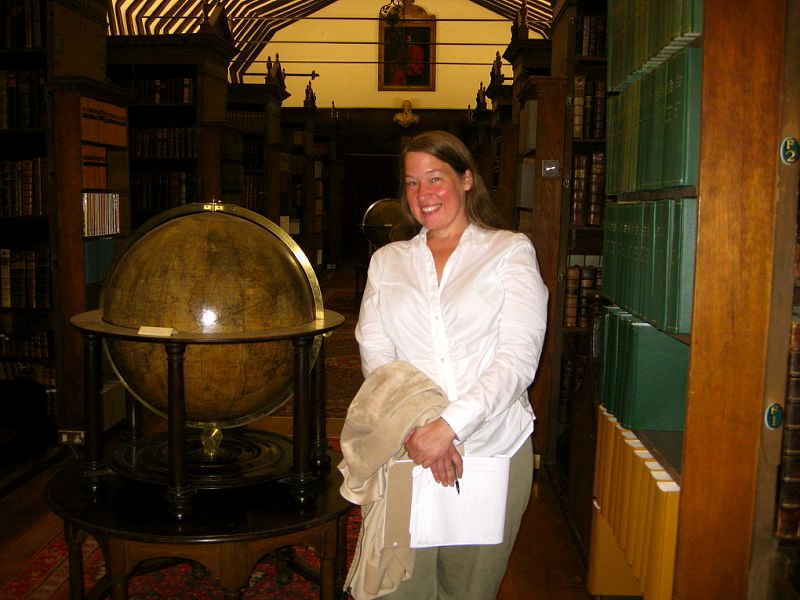
How did you recieve the grant that allowed you to go abroad?
I applied for the NEH summer seminar by writing a brief application
letter and sending in my CV and letters of recommendation. The
history of the early printing press is a new interest that I hope
will complement the research and teaching interests that I already
have.
Where did you go and what did you do there?
We began in Antwerp, Belgium, studying with Professor Guido Latre at
the Plantin Moretus museum. Each library that we visited created a
special display of manuscripts and early printed books at our
request, and this was a highlight of the trip. My favorite part of
Belgium was paging through a gorgeous 1405 illustrated Bible
manuscript. It was also a great privilege to learn from Professor
Latre, a wonderful lecturer whose knowledge is vast.
We then moved to London and the British Library. My plan was to
examine three copies of Elizabeth Cary's closet drama, The Tragedy
of Mariam (1613) at the BL but they were in use so I didn't get to
look at them until I returned later in the summer. This was my
first opportunity to work in the new British Library, though, and I
was very pleased. The library has become more accessible to
non-academics, which makes it more lively but this also raises
serious concerns about wear and tear on the texts. Nevertheless,
the book exhibit was amazing: we examined personal copies of
religious texts owned by Henry VIII, Anne Boleyn, and Elizabeth I.
Awesome. It was a serious geekfest!
Finally, we travelled to Oxford for four weeks. This was
outstanding! We worked at the Duke Humphrey's library, which is
gorgeous. I examined a series of letters by Elizabeth Cary's
children as well as three more printed copies of The Tragedy of
Mariam (1613). We had fascinating seminar meetings about our
readings and research. There was also a lot of time for fun: I had
day trips to Bath, Birmingham, Stratford, and London, and I watched
a ton of plays including two unbelievable versions of The Winter's
Tale. Of most interest to you? I saw Jude Law in Hamlet, Ethan
Hawke in The Winter's Tale, and...drum roll, please...Patrick
Stewart and Ian McKellan in Waiting for Godot. I saw 10 - 12 plays
in all, I think, including a truly horrible version of 'Tis Pity
She's a Whore.
After the five-week seminar, I went to London for two weeks, visited
St Ives in Cornwall for a week with a friend, and then returned to
London for another week before returning back to Minnesota in
August. It was an exciting trip!
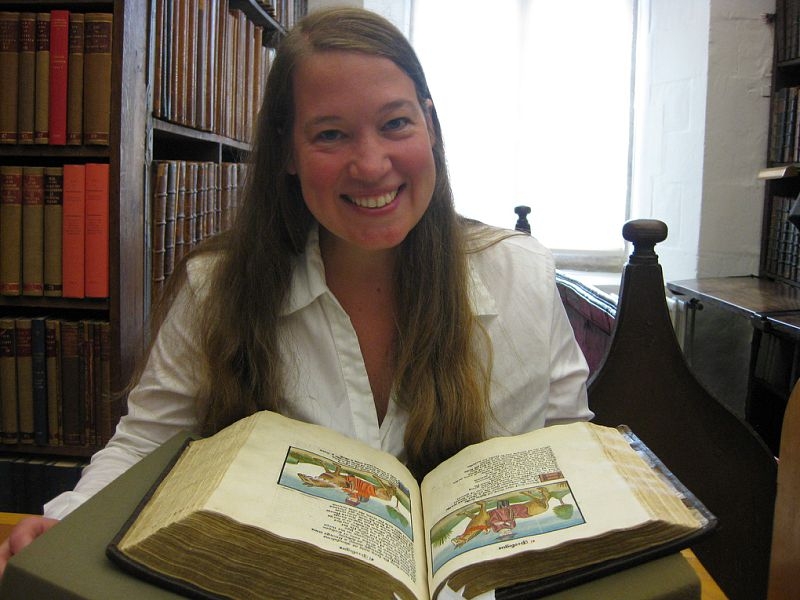
How will what you gathered on the trip enhance your future teaching?
I learned a lot about the role of early printing press during the
Reformation for both Protestants and Catholics. This seminar is
relevant to all of my early modern literature courses from the early
British survey to Shakespeare. There are also some fascinating
issues of theory including discussions of how readers of various
skills levels both read and wrote in the period. If a text is
well-illustrated, how would someone who is illiterate "read" it?
Could it be used subversively as a Catholic text when it was
originally a Protestant one--or at least was disguised as a
Protestant text.
Do you miss being in the classroom?
More than I thought I would! The excitement of the beginning of the
school year can be addictive, and I miss hearing students discover
exciting new ideas and texts. I don't miss grading, of course, and I
don't miss students' anxieties about work load and deadlines,
though.
Are you sad/disappointed that you will not be teaching the
Shakespeare course this year?
Of course! There are two sad parts of my sabbatical: I miss
Professor Hale and I'm sorry that I won't be teaching the old
ruff-wearing bastard this year! I'm pretty excited to share some of
the new ideas that I have about his work, though. I may have an
opportunity to enhance my use of performance studies in the
Shakespeare course toward the end of my sabbatical, and that would
be very exciting for me and for students.
Do you have any advice for English majors in regards to going
abroad?
Go. It is easier and cheaper than you think, and it deepens your
life more than you can imagine. The world is a beautiful place.
When in your life will you have a chance to go abroad for five-six
months? Never, for most people. I've never known a student to regret
it although I've met many who wished they could have stayed longer.
Talk to Crazy Laura Dumont if you are unsure if it will be a good
time. :)
What is one final thought you would like to leave the majors with?
I miss you--especially the seniors! Don't forget to read! It is the
main thing that our graduates tell us: I wish I would have been more
disciplined about keeping up on the reading, especially in the
surveys. And if you are looking for pleasure reading, pick up
McCormac's The Road. Awesome!
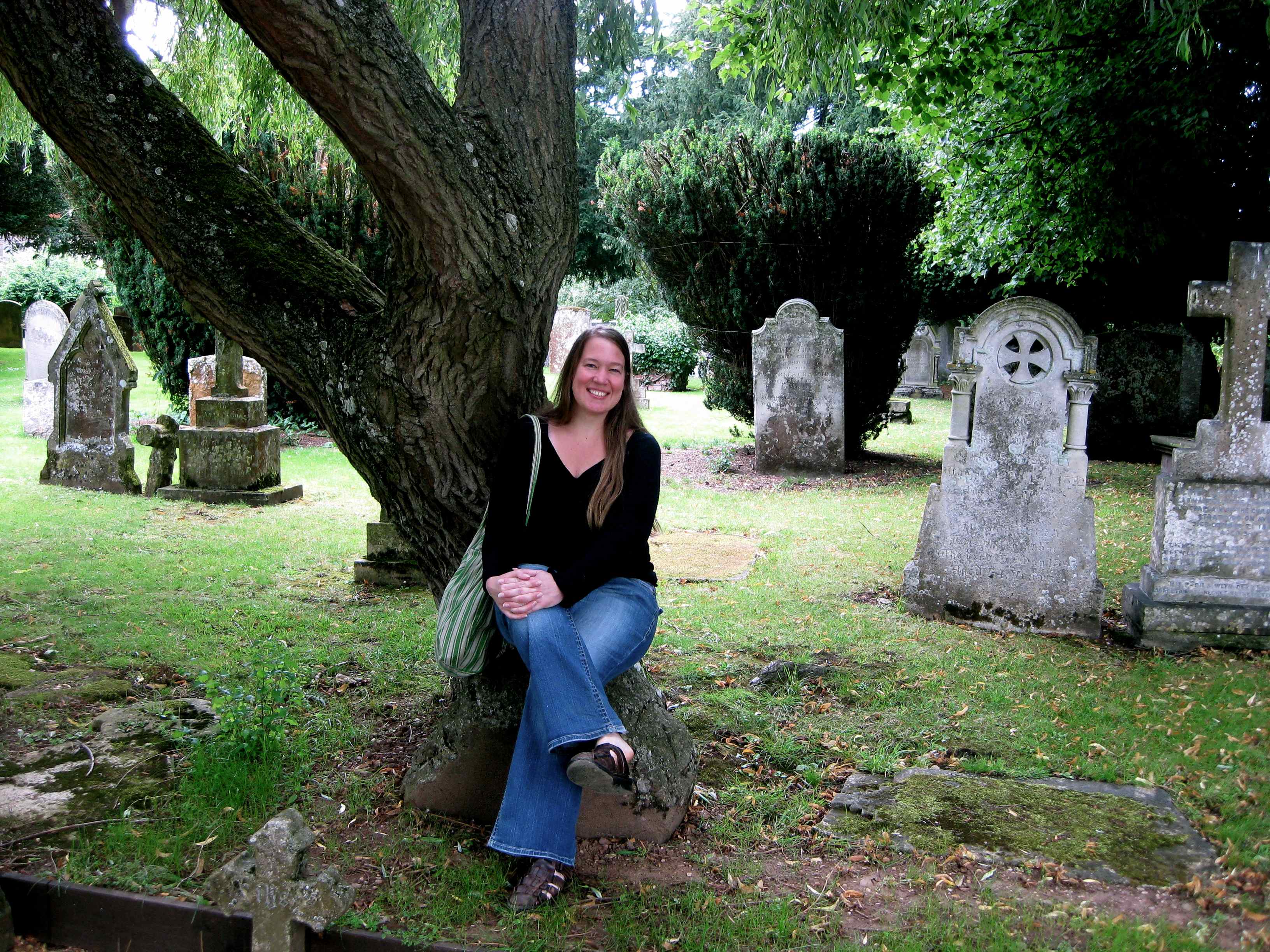
Survey Says!!!!
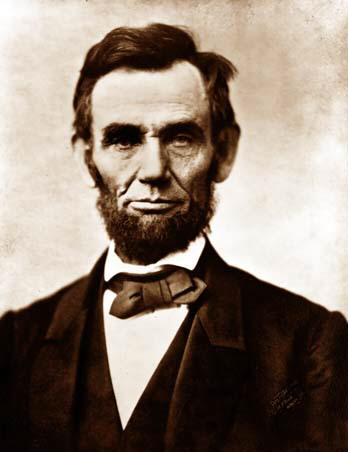
What
literary figure, real or fictional, would you like to see run for
President?
How about Jesus. He's got the spin
thing going for him (the difference being that his stories are parables instead
of plain old lies) so he will fit into a career as a politician. It would also
help to have an all-knowing head of state when dealing with...everything. The
best part of it is that when he says he's "for the people" you can be sure he is
not lying.
-Thomas Hans Hinrichsen
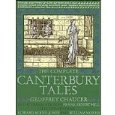
Geoffrey Chaucer. Who
could be more thoughtful and accepting of others and their quirks
and oh-so-human flaws than the writer of
The Canterbury Tales?
So humble? So insightful? Plus he has some interest in politics. And
while accepting, he is also aware of
corruption.
-Marlo
Belschner

I would
like to see Little Bear because he is cute and cuddly and always has
a sweet tooth for honey.
-Daniel Pitts
Albus
Dumbledore because he is an intellectual, honest, and non-biased (wizard) man
who is always righting wrongs and looking for the good in any situation! Also,
he would set the record for the President with the longest beard! :-)
-Crystal Chalkey
Scrooge McDuck for
President.
-Mary H. Bruce
Hmmmm
tough one! Probably Martha from
Who's Afraid of Virginia Woolf...she's got a
heckuvalot of spunk!
Kayt
Griffith
Well, the obvious
answer is
To Kill a Mockingbird’s Attic us Finch, because who wouldn’t
want a fair, understanding, eloquent lawyer for a President? The less obvious
is Lear’s daughter Cordelia. She doesn’t speak when she shouldn’t, she follows
through on her convictions, and she has empathy for those around her. Plus she
tempers those around her with good sense and reason. us Finch, because who wouldn’t
want a fair, understanding, eloquent lawyer for a President? The less obvious
is Lear’s daughter Cordelia. She doesn’t speak when she shouldn’t, she follows
through on her convictions, and she has empathy for those around her. Plus she
tempers those around her with good sense and reason.
Mark Willhardt
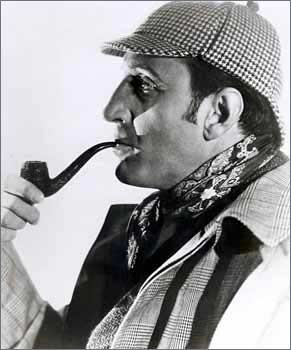
My vote would go to
the great detective and solver of all mysteries, Sherlock Holmes. Perhaps he
could shed some light on this economic crisis. I imagine it may take more than
three pipes to solve though.
-Paige Halpin
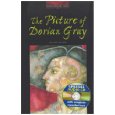
I'd
like to see Lord Henry from
The Picture of Dorian Gray run for president. He
drives me nuts, kind of like John McCain and Sarah Palin.
-Anne Stone
If any
lite rary figure could run for president I wish it could be Madeline. She is an
amazing little girl who is always looking out for the good of others. As far as
her VP nominee I would choose Miss Clavel, she is the old wise reason behind
Madeline's ambition. Those two would be one heck of a team! rary figure could run for president I wish it could be Madeline. She is an
amazing little girl who is always looking out for the good of others. As far as
her VP nominee I would choose Miss Clavel, she is the old wise reason behind
Madeline's ambition. Those two would be one heck of a team!
-Sammy
Morgan
Laura Inglles Wilder,
she's a reflection of America and some of the hardships this nation has gone
through. She also reflects a lot of our history. She would be a good icon for
the nation, because she has, at least, the traditional America represented.
-Katie Moore
Among authors, I
would vote for C.S. Lewis because he is clever, compassionate, brilliant, and
humble. As for characters, I suppose his creation Aslan is the ideal
example of selfless courage and quiet strength.
-Noelle Templeton
Hmm... this is not exactly an easy
question to a nswer but I guess I would have to say Maya Angelou. She has a lot
of wisdom and seems to be really sensible from the point of making wise
decisions and not being afraid to back up her points. I really think that she
would turn this country is a positive direction. Plus, she would be an
interesting addition to the White House... for obvious reasons. nswer but I guess I would have to say Maya Angelou. She has a lot
of wisdom and seems to be really sensible from the point of making wise
decisions and not being afraid to back up her points. I really think that she
would turn this country is a positive direction. Plus, she would be an
interesting addition to the White House... for obvious reasons.
-Fannetta Jones

I hate to not play the game, but I
would choose Barack Obama from
Dreams From My Father. For an
elaborate explanation see above.
-Dustin Looney
|



 Over
the summer I was presented the opportunity to take Latin as a
foreign language over my alternative, Spanish (which I had drudged
through in high school for two years). I was excited by the
challenge and was told that Latin was the core center of many other
languages. Perhaps if I studied Latin I would have a better
understanding of English. Since I am an English major I decided to
take the 8 am Latin 101 class taught by Professor Tom Sienkewicz. As
the class progressed I had a few questions come to mind: What could
learning Latin offer us in the 21st century, how did our
magister (teacher) get his start and how could Latin help English
majors and minors.
Over
the summer I was presented the opportunity to take Latin as a
foreign language over my alternative, Spanish (which I had drudged
through in high school for two years). I was excited by the
challenge and was told that Latin was the core center of many other
languages. Perhaps if I studied Latin I would have a better
understanding of English. Since I am an English major I decided to
take the 8 am Latin 101 class taught by Professor Tom Sienkewicz. As
the class progressed I had a few questions come to mind: What could
learning Latin offer us in the 21st century, how did our
magister (teacher) get his start and how could Latin help English
majors and minors.




 us Finch, because who wouldn’t
want a fair, understanding, eloquent lawyer for a President? The less obvious
is Lear’s daughter Cordelia. She doesn’t speak when she shouldn’t, she follows
through on her convictions, and she has empathy for those around her. Plus she
tempers those around her with good sense and reason.
us Finch, because who wouldn’t
want a fair, understanding, eloquent lawyer for a President? The less obvious
is Lear’s daughter Cordelia. She doesn’t speak when she shouldn’t, she follows
through on her convictions, and she has empathy for those around her. Plus she
tempers those around her with good sense and reason. 

 rary figure could run for president I wish it could be Madeline. She is an
amazing little girl who is always looking out for the good of others. As far as
her VP nominee I would choose Miss Clavel, she is the old wise reason behind
Madeline's ambition. Those two would be one heck of a team!
rary figure could run for president I wish it could be Madeline. She is an
amazing little girl who is always looking out for the good of others. As far as
her VP nominee I would choose Miss Clavel, she is the old wise reason behind
Madeline's ambition. Those two would be one heck of a team! nswer but I guess I would have to say Maya Angelou. She has a lot
of wisdom and seems to be really sensible from the point of making wise
decisions and not being afraid to back up her points. I really think that she
would turn this country is a positive direction. Plus, she would be an
interesting addition to the White House... for obvious reasons.
nswer but I guess I would have to say Maya Angelou. She has a lot
of wisdom and seems to be really sensible from the point of making wise
decisions and not being afraid to back up her points. I really think that she
would turn this country is a positive direction. Plus, she would be an
interesting addition to the White House... for obvious reasons. 
